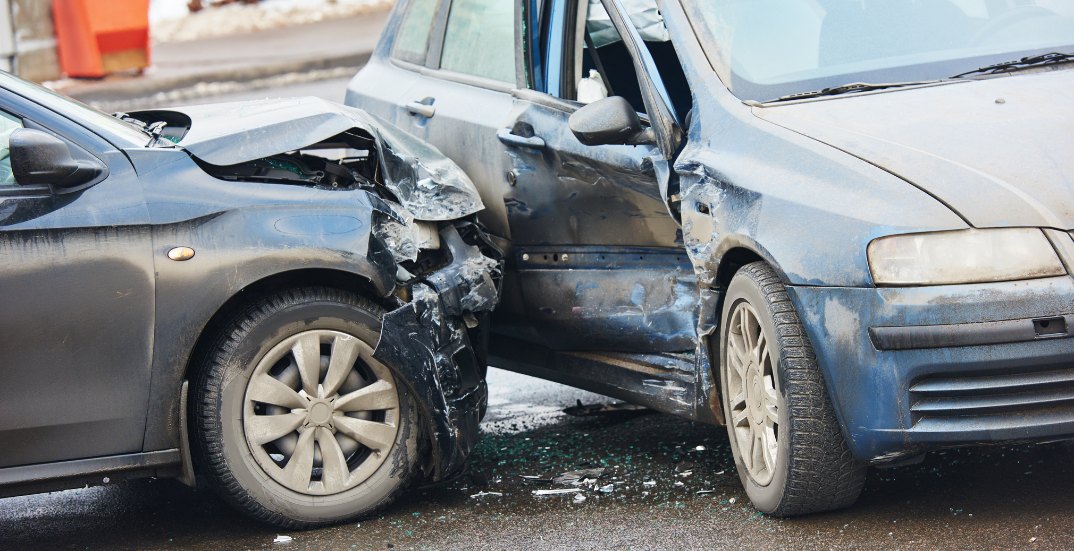Car accidents can leave lasting emotional scars, often overlooked in the aftermath of physical injuries. At Manchin Ferreti Injury Law, we understand that emotional distress is a legitimate component of many accident claims in West Virginia. Talking to a counselor helps you feel better and proves how the crash affected you.
By seeking professional mental health support, accident victims not only address their psychological trauma but also create a documented record of their emotional suffering. This documentation can significantly strengthen a claim for emotional distress damages.
In this article, we’ll explore how therapy and counseling can benefit car accident victims personally and legally under West Virginia law.
Understanding Emotional Distress in Car Accident Claims
Collisions on the road often result in more than just physical injuries; they can inflict deep emotional wounds that persist long after the incident. In West Virginia, as in many states, the law recognizes emotional distress as a compensable injury in accident claims. Emotional trauma following a car accident can take many forms, such as:
- Anxiety and panic attacks
- Depression
- Post-traumatic stress disorder (PTSD)
- Sleep disturbances
- Intense fears about operating or riding in automobiles
At Manchin Ferreti Injury Law, clients often struggle with these issues after an accident. It’s worth emphasizing that emotional distress claims can be pursued even in the absence of physical injuries, though they’re often stronger when accompanied by bodily harm.
West Virginia follows the rule of “foreseeability” regarding emotional distress claims. This means that if the emotional suffering was a reasonably foreseeable result of the accident, it can be included in the claim. However, proving emotional distress can be challenging, which is where therapy and counseling become invaluable.
The Role of Therapy in Healing and Documentation
Seeking therapy after a car accident serves two crucial purposes: healing and documentation.
Let’s explore each of these aspects:
Healing
Mental health professionals offer invaluable assistance to those affected by vehicular incidents, equipping them with strategies to manage psychological distress.
Through proven methods like cognitive-behavioral therapy (CBT) and eye movement desensitization and reprocessing (EMDR), counselors guide individuals in addressing emotions such as fear, anxiety, and depression.
This expert care plays a crucial role in restoring the well-being of those impacted and can lead to substantial improvements in their day-to-day life following the traumatic event.
Documentation
From a legal standpoint, therapy sessions create a professional record of the emotional distress experienced by the accident victim. This documentation is crucial when building a solid claim. It provides:
- A timeline of symptoms and their progression
- Professional observations of the impact on the victim’s life
- Detailed Notes on the treatment plan and its effectiveness
In West Virginia courts, this kind of expert documentation carries significant weight. It helps to objectively demonstrate the reality and extent of the emotional suffering, making it hard for the insurance companies or opposing counsel to dismiss or minimize these claims.

Types of Therapy and Counseling Beneficial for Car Accident Victims
Different forms of therapy can be beneficial for car accident victims, depending on their specific needs and symptoms. Some commonly recommended approaches include:
- Cognitive Behavioral Therapy (CBT): CBT helps change how you think and act. It’s suitable for fixing worry, sadness, and bad memories after scary events.
- Exposure Therapy: Individuals who acquire intense anxiety about operating or riding in automobiles may benefit from gradual desensitization techniques. These methods, conducted in secure, monitored settings, allow people to confront their driving-related fears comfortably.
- EMDR therapy: This new way helps with scary memories after a crash. It changes your thoughts about what happened, so it doesn’t upset you as much.
- Talk with others: Meet people who’ve been through the same thing. It can help you feel better and make new friends.
- Family Therapy: Car accidents can affect entire families. This approach helps address relationship strains and teaches family members how to support the accident victim.
At Manchin Ferreti Injury Law, we often recommend our clients consult with mental health professionals to determine the most appropriate form of therapy for their situation. The choice of treatment can also influence the strength of an emotional distress claim, as some approaches may provide more detailed documentation than others.
Legal Considerations in West Virginia
When pursuing emotional distress claims in West Virginia, there are several legal factors to consider:
- Time limit for legal action: In West Virginia, you have two years after the crash to ask for money. It’s wise to start therapy and build your case before this time runs out.
- Modified Comparative Fault: West Virginia follows a 50% modified comparative fault rule. This means that if you’re found to be 50% or more at fault for the accident, you cannot recover damages. If you’re less than 50% at fault, the compensation you’re eligible to receive will be adjusted downward to reflect your share of responsibility.
- No-Fault Insurance: West Virginia is not a no-fault insurance state, which means you’re not required to prove a certain injury threshold before pursuing a claim against the at-fault driver.
- Burden of Proof: The plaintiff (injured party) bears the burden of proving their emotional distress claim. This is where consistent therapy and thorough documentation become crucial.
- Expert Testimony: In many cases, testimony from the treating therapist or a forensic psychologist can significantly strengthen an emotional distress claim. These specialists can offer authoritative assessments regarding the severity and consequences of psychological distress.

Strengthening Your Claim Through Therapy
To maximize the impact of therapy on your emotional distress claim, consider the following steps:
- Seek Help Early: Don’t wait to start therapy. Early intervention can both aid your recovery and establish a clear link between the accident and your emotional distress.
- Be Consistent: Attend therapy sessions regularly. Consistent attendance demonstrates your distress’s ongoing nature and commitment to recovery.
- Follow Treatment Plans: Adhere to your therapist’s recommendations. This shows you’re actively working to mitigate your damages, which is viewed favorably in legal proceedings.
- Keep a Journal: Complementing clinical records and maintaining a day-to-day account of your experiences can offer corroborating information. This personal blog, detailing your symptoms and their impact on routine activities, is a powerful supplement to professional assessments.
- Communicate with Your Attorney: Keep your legal team at Manchin Ferreti Injury Law informed about your therapy progress. This allows us to incorporate the most up-to-date information into your claim.
- Consider All Impacts: Discuss with your therapist how the emotional distress affects various aspects of your life, including work, relationships, and daily activities. This comprehensive view can strengthen your claim for damages.
- Be Honest: Always be truthful about your symptoms and progress. Exaggeration can harm your credibility and potentially your entire case.
By following these steps and working closely with your therapist and our legal team at Manchin Ferreti Injury Law, you can build a solid emotional distress claim while also focusing on your recovery and well-being.
In conclusion, therapy and counseling play a vital role in both the healing process and the legal aspects of emotional distress claims after car accidents. In West Virginia, where the law recognizes the validity of these claims, professional mental health support can make a significant difference in the result of your case.
At Manchin Ferreti Injury Law, we’re committed to helping our clients navigate this complex intersection of personal recovery and legal action, prioritizing their rights and well-being. If you’ve been involved in a car accident in West Virginia, don’t hesitate to contact our experienced personal injury attorneys for guidance and support.
Additional Resources
- National Center for PTSD – Resources for Trauma Survivors: This site offers comprehensive information on PTSD, including treatment options and resources for individuals affected by trauma from car accidents. Explore the National Center for PTSD




